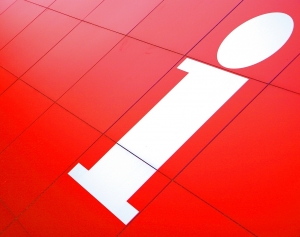7 Sep 2017

I guess they first question to answer is 'why would you interview for a coach?'. When I was MD of a plastic moulding company, I realised I would perform better with an external coach, someone to push me forward, help me address areas that I could improve and help to deliver my full potential as a business leader. I took recommendations from business people I trusted and interviewed three very different coaches. All were competent, but I chose to work with the one that would push me most, to help me deliver more than I could on my own.
Killer Question 1: "What are your hobbies?"
Killer Question 2: "Are you qualified as a coach?"
Many coaches do not have formal training and some of them do a great job for their coachees. However, in may cases, coaches are letting down their coachees as they have not been trained how to do it. You wouldn't expect a sports coach to be the best unless they had done formal coaching badges. It is the same with business coaching.
It became clear to me duiring my ILM training, that there is so much more to coaching than I originally thought. There are so many apporaches and techniques that can be apllied and adopted to meet the specific needs of each coachee. The coaching models and techniques that can be applied, methods of evaluation to ensure maximum return for the coachee and documentation to protect both parties, are examples of vital elements of being formally trained as a coach.
Killer Question 3: "Do you have experience of running a business?"
It is true that a professional, well-trained coach can help you solve your business problems without understanding the detail of your business and how it operates. However, if a well-trained coach has also got a depth of business experience, they can use that knowledge to enhance their coaching and bring you even more benefit.
Leading a business is challenging with many highs and lows. Whether you are a high-performing business with growing pains, or a business with significant structural issues to address, then working with a coach who has ‘been there and got the T-shirt’ can be a real bonus.
I often marry together my 30 years of manufacturing and business experience with my coaching. I never ‘tell’ business leaders how they should sort out issues or improve the way they operate, but having empathy and experience of being a Managing Director in manufacturing companies is a resource that can be used to great effect
Killer Question 4: "Do you have regular supervision? Who coaches you?"
Your coach should be attending regular Supervision sessions with qualified supervisors. and preferably have another coach to work with.
Most coaches are not trained counsellors or psychotherapists, but coaching sessions can sometimes touch on psychological issues in clients. Knowing the limits of a coach’s own capabilities is vital if both parties are to be safe and protected. It is vital that your coach knows when they need to step back and allow a different professional to do their work.
Supervision ensures protection of both the coachee and the coach, both from you going backwards with inappropriate coaching, or the coach becoming ‘too close’ to you to be effective. Retaining an objective viewpoint is essential if your coach is going to give you maximum benefit.
Supervision also gives a coach the opportunity to discuss and resolve any ethical dilemmas that they may be having. The coachee is at the centre of everything a coach does and they must always make sure that everything is done in your best interest.
Working with another coach allows your coach to effectively self-assess their impact on you as a coachee. This work is essential if your coach is going to provide you with the very best service.
Killer Question 5: "What was the last coaching book you read and why?
You want a coach who is passionate about what they do and wants to be the best they can be. Every coach should be on a personal development program. I regard myself on a lifetime learning journey and the more I learn, the more I want to know.
Today’s business world changes faster than ever. Expectations of employees are ever-changing, new technology is introduced and new business models appear almost daily. A professional coach knows that he or she needs to have as many techniques as possible if they are going to give the maximum benefit to you, their coachee.
Your coach should be able to demonstrate that they continue to seek out new ways to help their clients. New techniques and styles of coaching are always emerging and can be used to maximise the impact of coaching on your performance. Reading books and attending formal CPD sessions should be the minimum to expect from an effective coach.
I hope that these questions will help you in your search for a coach. Best of luck finding the person who can take you to a new level.

